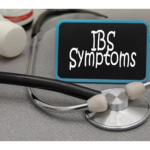Our Blog
5 Signs You Could Have A Leaky Gut and What To Do

Years ago, before the evolution of modern medicine, many doctors believed that all ailments originated from imbalances within the stomach. While this was eventually rejected, many medical professionals are now taking a step back and seeing if that belief actually held some truth. With a consistent rise in various medical conditions and diseases, could a leaky gut actually be to blame?
What Is Leaky Gut?
To understand leaky gut syndrome or LGS, it’s important to first understand how the gastrointestinal (GI) system works. The GI tract includes the esophagus, stomach, and the small and large intestines. There are openings within the intestinal walls that allow for water and nutrients to pass through into the bloodstream while keeping harmful substances out.
With LGS, however, these openings have widened making them unable to keep things like food particles, toxins, and bacteria from entering the bloodstream. Furthermore, some believe that an imbalance in the microbiota, or the bacteria that inhabits the gut and aids in digestion, is also to blame for this condition.
Signs of LGS
While most doctors do not consider LGS, or what is sometimes referred to as increased intestinal permeability an actual condition, interest, and therefore research, is growing. Some even believe that it could be the cause of several medical conditions. So what are the common signs of this condition?
Those experiencing this syndrome will likely have the following:
- Nutritional deficiencies and fatigue
- Inflammation and joint pain
- Chronic diarrhea, bloating and constipation
- Confusion or difficulty concentrating
- Skin problems such as rashes, acne, and eczema
Risk Factors
While more research on this condition is needed, some medical professionals do believe they have nailed down several causes and risk factors. These include:
- Alcohol consumption
- Infections
- Poor nutrition
- Stress
- Diabetes
- Autoimmune disorders
Additionally, some believe that this condition may be the result of the protein known as zonulin. It happens to be the only regulator of intestinal permeability that has been discovered thus far. When activated by gluten or bacteria in the GI tract, it is believed that it too could cause LGS.
Lifestyle Changes
So what can be done if you suspect that you or someone you know may have LGS? Really, it boils down to lifestyle changes, especially within the diet. Try to remove foods that can be inflammatory such as alcohol, processed foods, and those that are known to cause allergies and sensitivities. Instead, reach for those that are rich in prebiotics and probiotics, grab fewer eggs, meat, and dairy items, and avoid sugar and artificial sweeteners.
Additionally, the following lifestyle changes are also vital to overcoming a leaky gut:
- Avoiding the unnecessary use of antibiotics
- Getting plenty of exercise
- Reducing stress
- Getting adequate sleep
- Quitting smoking
Get Help Today!
While all of these changes may not be easy, they can certainly make you feel better without the harmful side effects of medication. If you would like support on your journey with a leaky gut, call our team at the Gut Authority. We would love the opportunity to teach you more about your body and healing it from the inside out!




